Some airports in Europe fall in the list of the oldest airports in the world, while others rank as the busiest global airports in the world. Amsterdam Airport Schiphol (AMS), for example, offered 39,998,853 seats to international passengers, and was ranked fifth in the list of the busiest international airport in 2024. But where does this airport, and other popular airports such as London Heathrow among others, rank in the list of the busiest European airport in 2024 [calculated using one-way airline capacity (domestic and international)]? Let’s find out.
10.London Gatwick
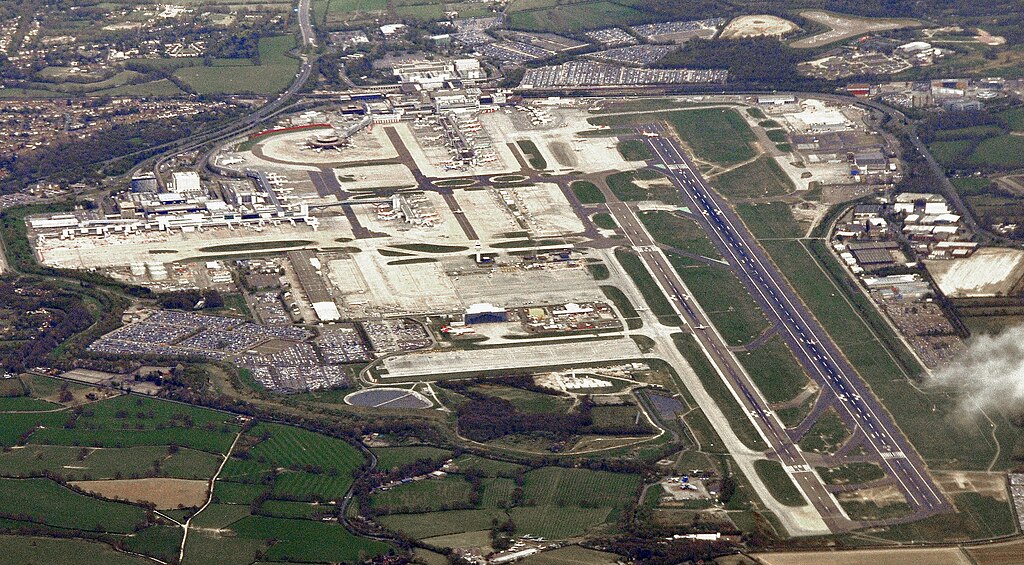
Photo: Mike McBey | Wikimedia Commons
The secondary international airport servicing London, London Gatwick [usually referred to as Gatwick Airport (LGW)] has fallen from its ninth place in the ranking of Europe’s busiest airport in 2023 to the tenth position in 2024. The airport offered 25,500,205 seats for passengers in 2024.

Photo:Oast House Archive via Wikimedia Commons
Gatwick Airport is home to budget airlines such as easyJet UK, Norse Atlantic UK, among others. The image above shows the train station, just out of sight to the left, are approached by the main line railway, and the transit system linking the two terminals runs behind it.
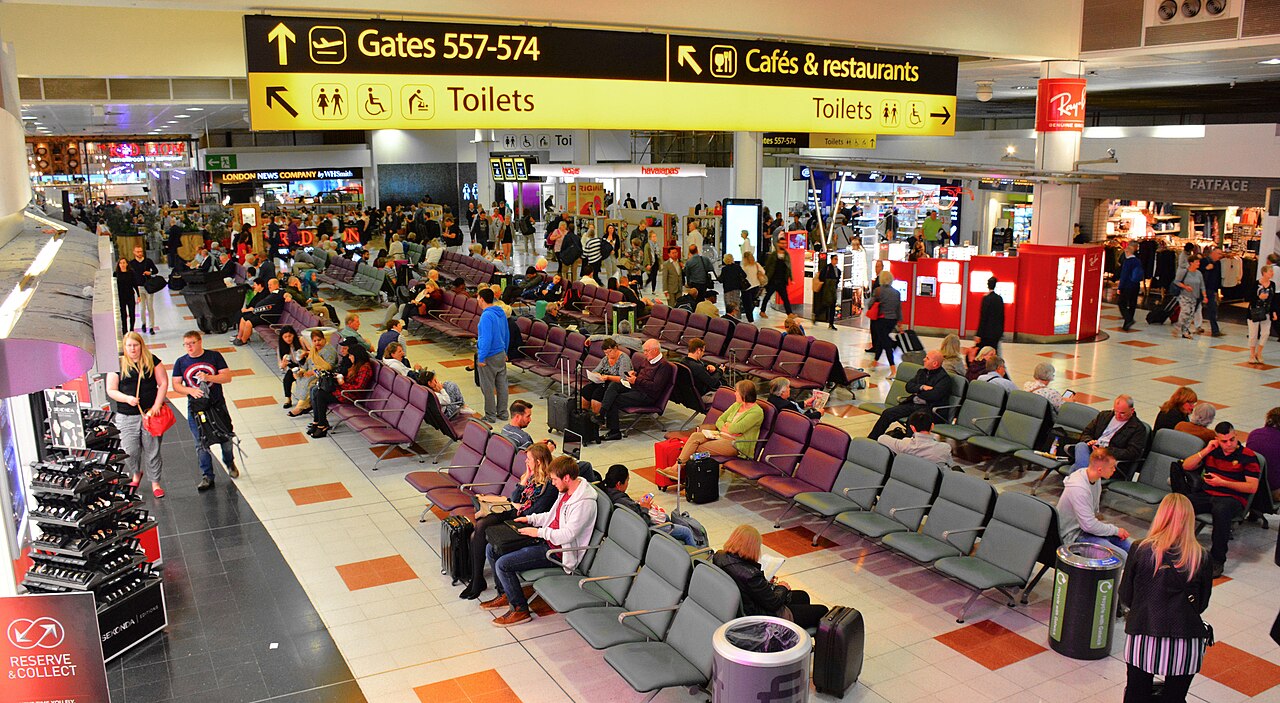
Photo: Mike McBey via Wikimedia Commons
Gatwick Airport was the tenth busiest European airport in 2019 as well.
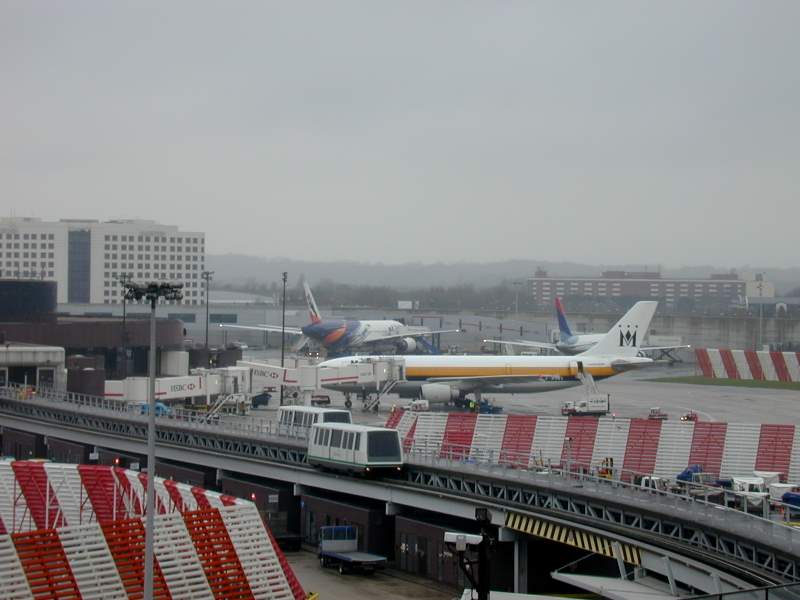
Photo: Hunter Desportes via Wikimedia Commons
As far back as march 2024, there were 56 airlines operating to 220 destinations from Gatwick, including 51 long-haul flights and 169 short-haul destinations.
9. Munich International
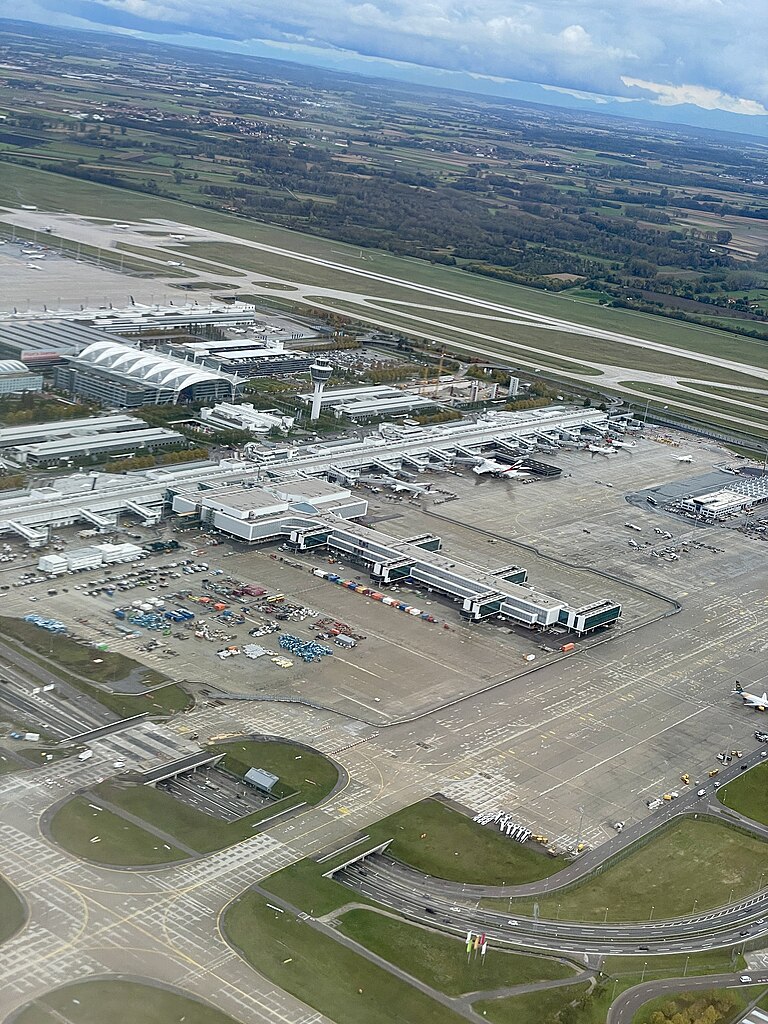
Photo: Ilya Hirschberg aka Kreecher via Wikimedia Commons
München Airport, also known as Flughafen München “Franz Josef Strauß” (MUC), is an international airport that serves Upper Bavaria and Munich. Since operations from MUC, 50 million passengers have traveled to the US from this airport.

Photo: Asurnipal via Wikimedia Commons
The airport offered 26,738,742 seats in 2023. While it climbed one step in its ranking compared to 2023, its ninth place is two paces behind its 2019 rankings.

Photo: Christian R. Rohleder via Wikimedia Commons
Munich Airport (MUC) has hosted a Christmas Market since 1998, which has proven highly popular with locals and travelers alike.
 Munich Airport replaced the previous airport of the region – the Munich-Riem Airport , where the Munich Air Disaster struck. Memorial cross at the Emplstraße in Munich in remembrance of the Munich air disaster 06. Februrary 1958.
Munich Airport replaced the previous airport of the region – the Munich-Riem Airport , where the Munich Air Disaster struck. Memorial cross at the Emplstraße in Munich in remembrance of the Munich air disaster 06. Februrary 1958.
Photo: Flo Sorg | Wikimedia Commons
The Munich Airport opened a day after the closure of the previous airport of the region- the Munich-Reim Airport, which has not been developed into a new urban district consisting of housing projects, among other facilities. In 2019, Munich Airport saw 47.9 million passengers, before the Covid-19 halted this growth.
8. Rome Fiumicino
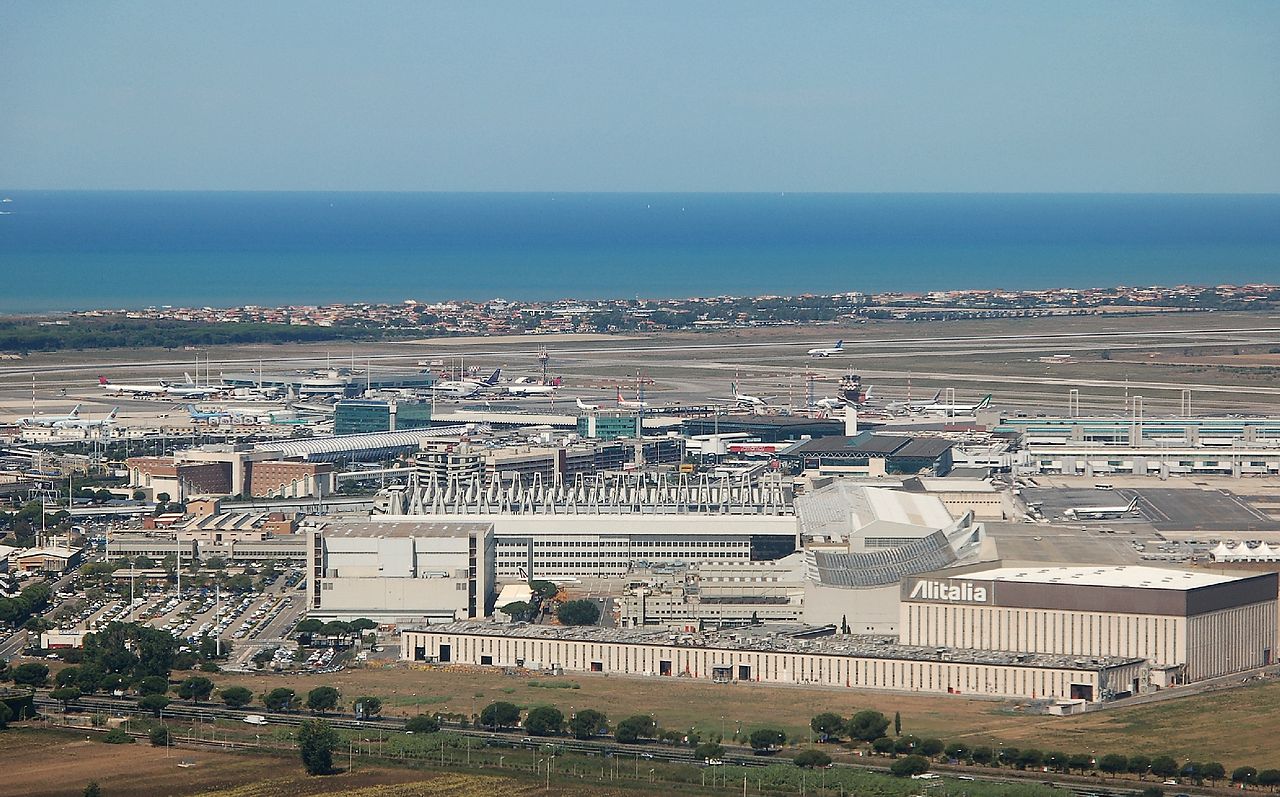
Photo: Ra Boe via Wikimedia Commons
With 30,486,201 seats, Rome Fiumicino Airport (FCO) (also known as Leonardo da Vinci International Airport) continues to hold its 2023 rankings of eighth place.

Photo: Carlo Dani via Wikimedia Commons
A couple of weeks ago, ITA Airways started operations from this airport to Libya- making it the first flag carrier in EU to do so. All the three big US airlines have regular passenger operations to the FCO.

Photo:Casey Hugelfink via Wikimedia Commons
Due to expansions and restorations, Terminals 2 and 5 were decommissioned, and operations were primarily concentrated into Terminals 1 and 3. Originally, the airport featured four terminals: T1, T2, T3, and T5.
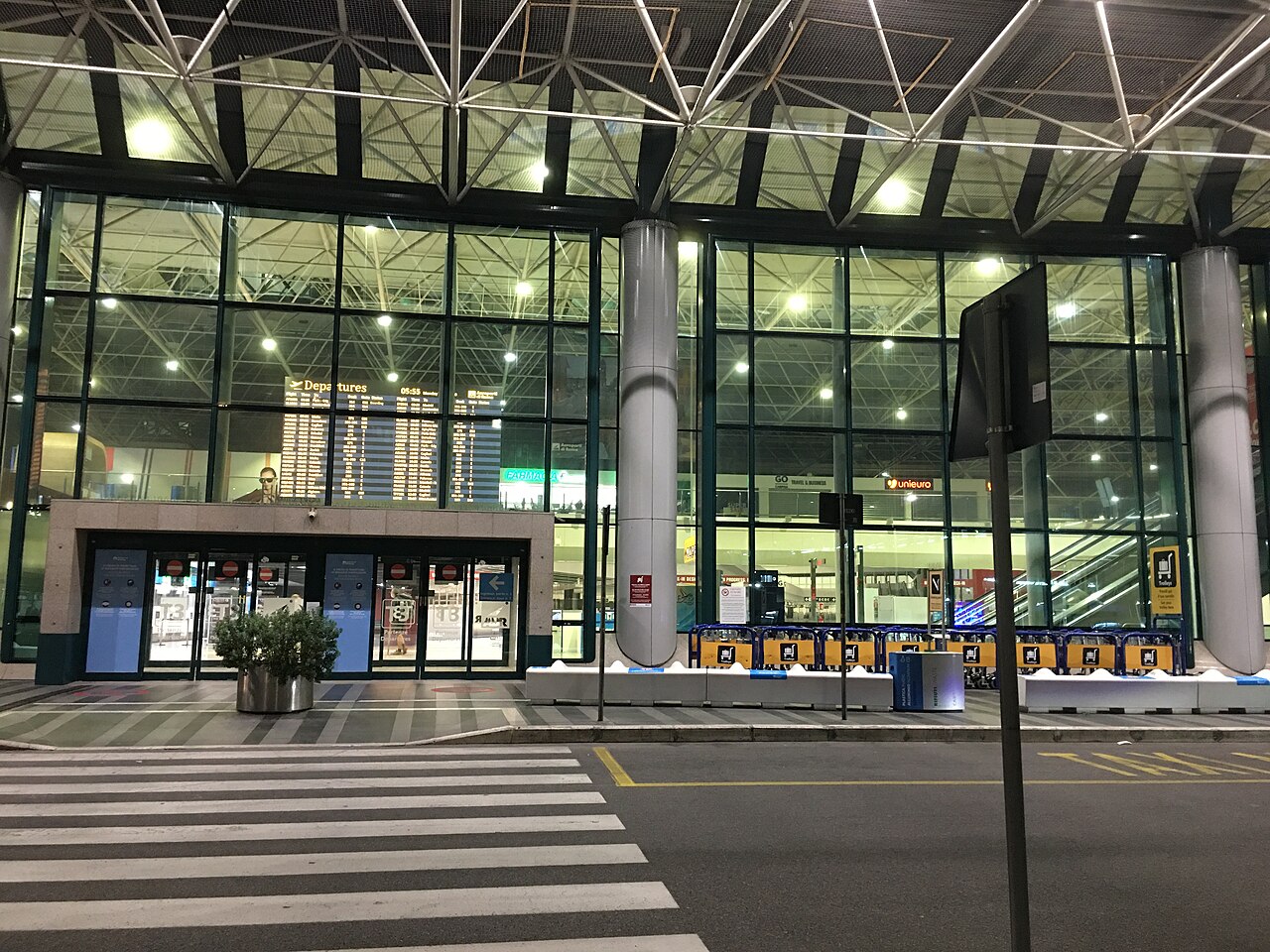
Photo: CAPTAIN RAJU via Wikimedia Commons
As the biggest and busiest airport in Italy, Rome Fiumicino Airport (also known as Leonardo da Vinci International Airport) the airport had welcomed 40.5 million passengers, compared to the second-busiest airport in Rome, Ciampino, which welcomed 3.9 million passengers last year.
7. Barcelona
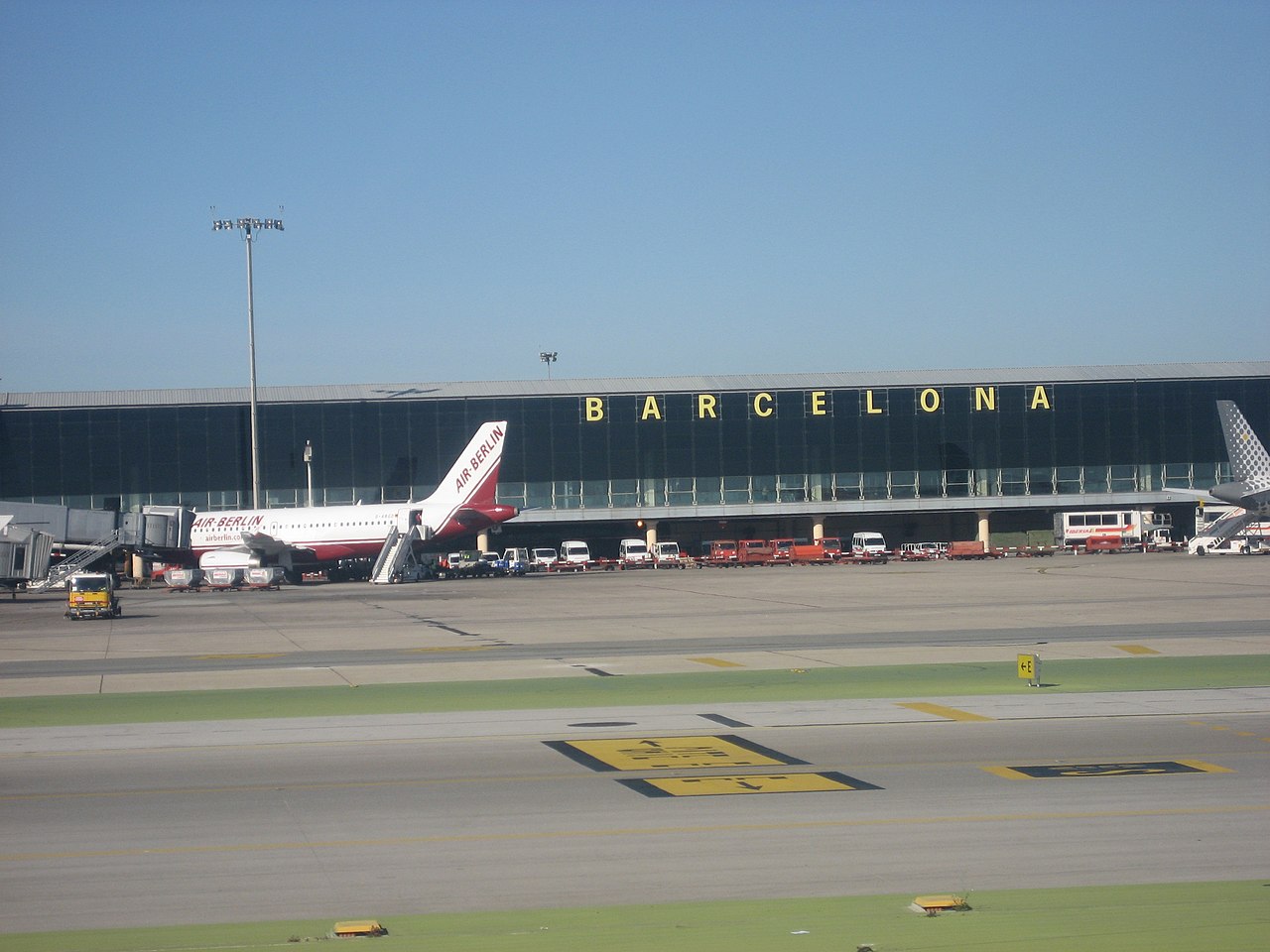
Photo: chenines via Wikimedia Commons
Barcelona-El Prat Airport (BCN) Spain, had 31,824,302 passengers in 2024, making it the busiest airport in Spain to make it to thislist.
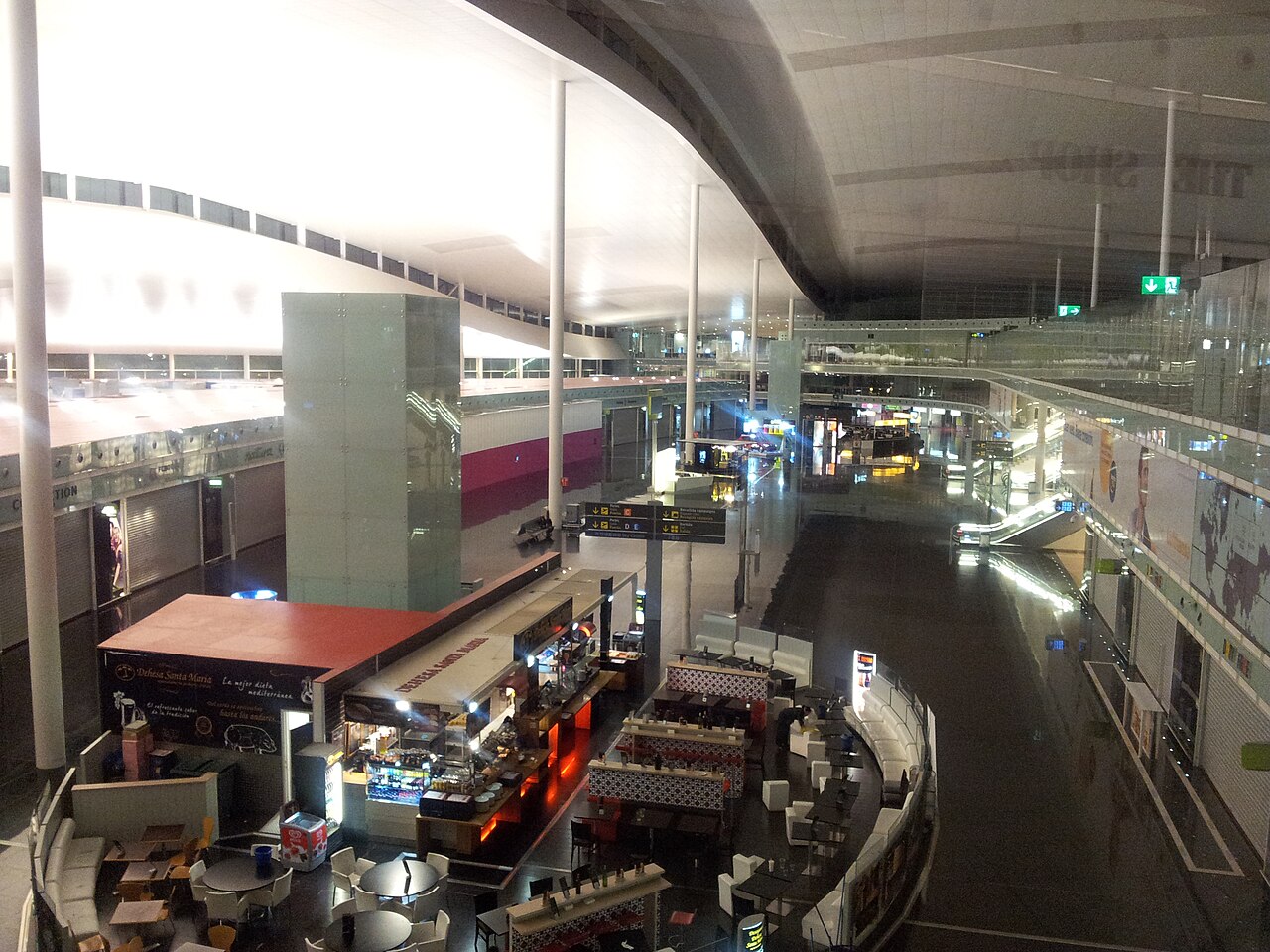
Photo: Little Savage via Wikimedia Commons
There are two primary terminals at Barcelona-El Prat Airport:
- The majority of long-haul and international flights are handled at Terminal 1 (T1), which is the biggest and the most advanced.
- Terminal 2 (T2): This older terminal, which is separated into T2A, T2B, and T2C, is mostly used for low-cost and domestic flights.

Photo: Kotofey2016 via Wikimedia Commons
Both Terminal 1 (T1) and Terminal 2 (T2) include cafés that provide a range of choices, from light bites to substantial meals. The airport also offered the world’s first AI-powered robotic restaurant.
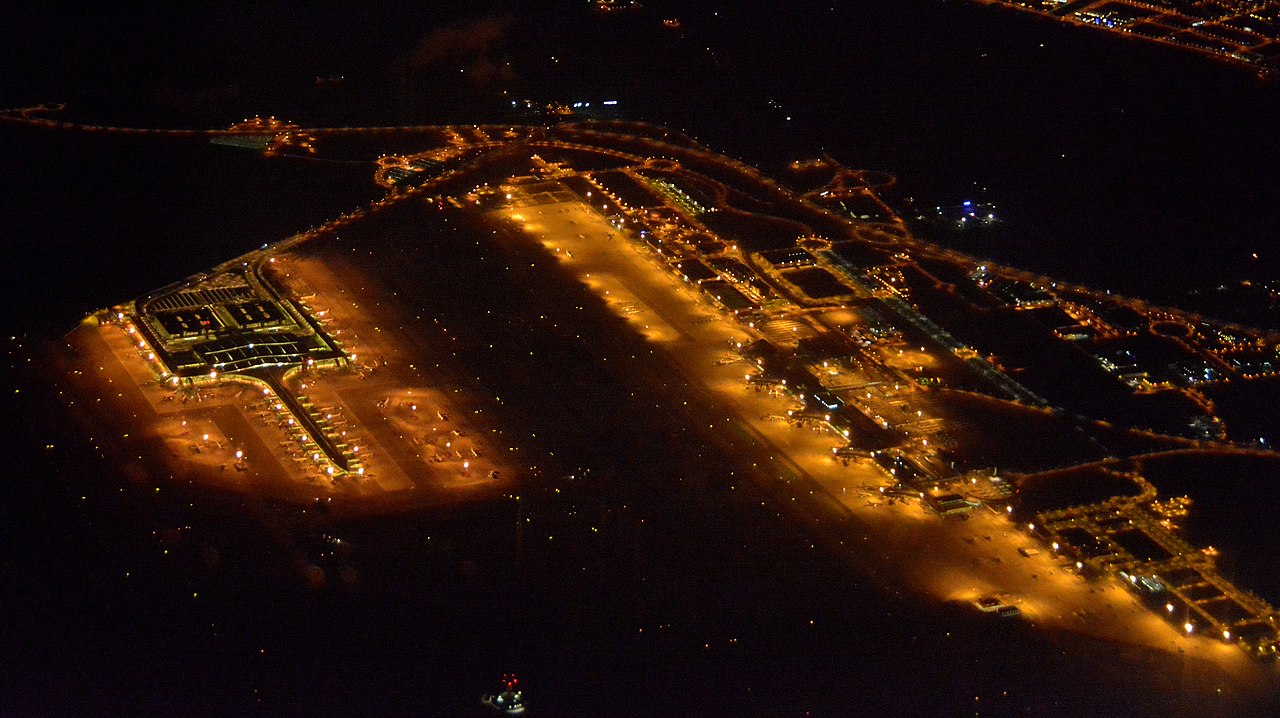
Photo: Mike McBey via Wikimedia Commons
When flying into Barcelona, the surrounding area offers a picturesque approach with its industrial zones and seaside scenery.
6. Madrid Adolfo Suarez-Barajas

Photo: Daniel via Wikimedia Commons
With 38,146,041 one-way airline seats, Adolfo Suárez Madrid-Barajas Airport (MAD) [also referred to as Madrid-Barajas Airport], is still ranked the same as it was the year before.

Photo: Alan Wilson via Wikimedia Commons
Adolfo Suárez Madrid-Barajas Airport offered 38,146,041 seats domestically. Its sixth rank was the same as in 2019 as well.
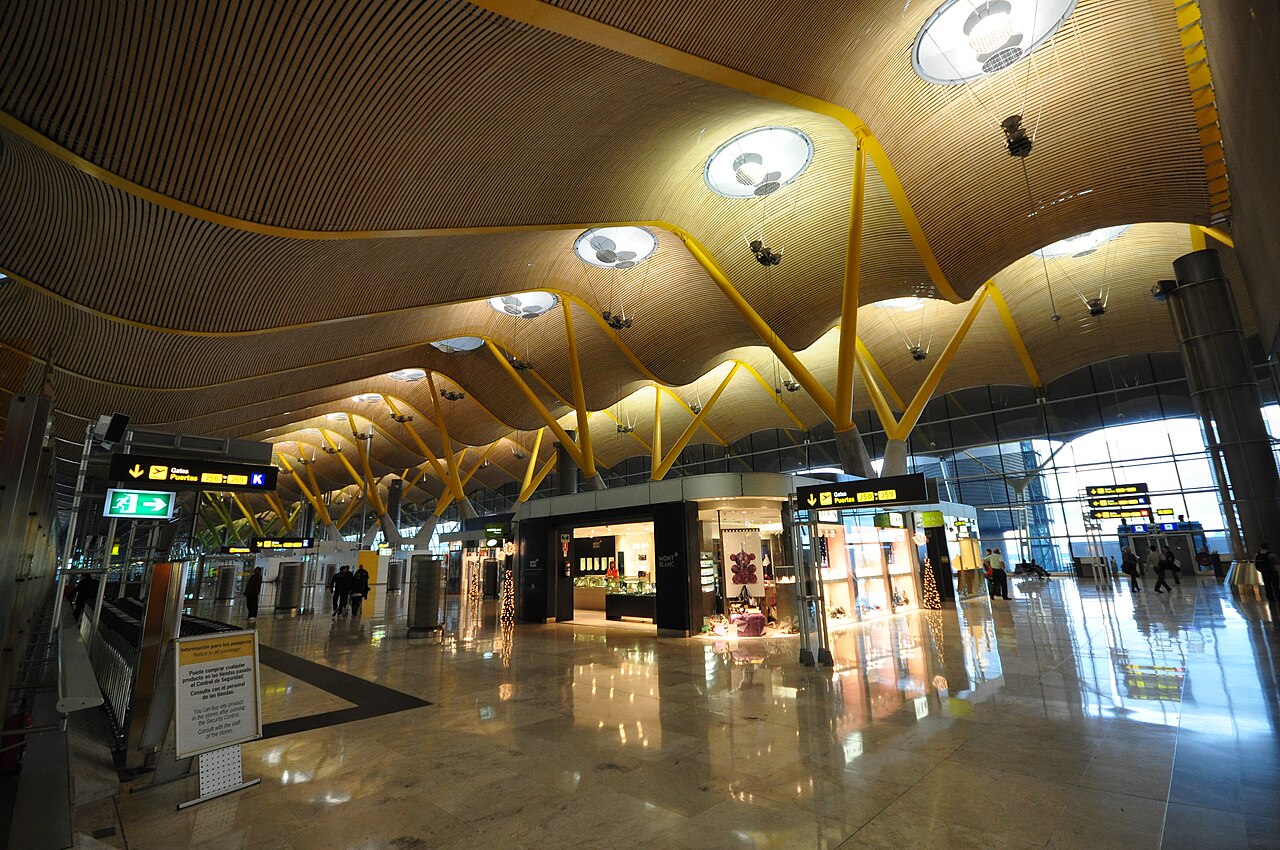
Photo: Jorge Láscar via Wikimedia Commons
For easier immigration processing, Madrid Airport keeps Schengen and non-Schengen planes apart. The airport is also the second largest in Europe [after Paris Charles de Gaulle Airport (CDG) in France].
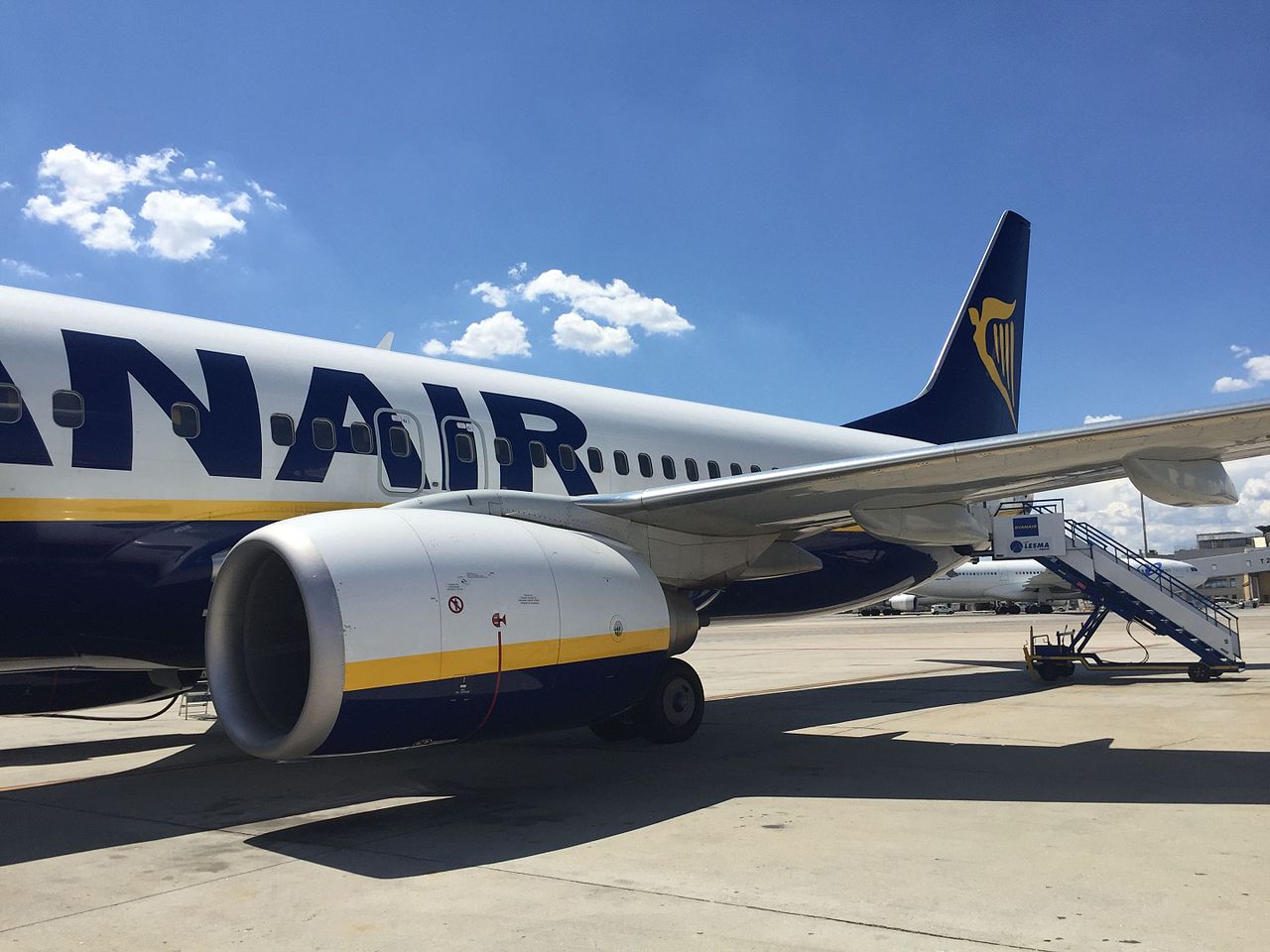
Photo: Benoît Prieur via Wikimedia Commons
The low-cost airline in Europe, Ryanair, has a strong presence at Madrid-Barajas Adolfo Suárez Airport and mostly flies short-haul routes around Europe.
5.Frankfurt International
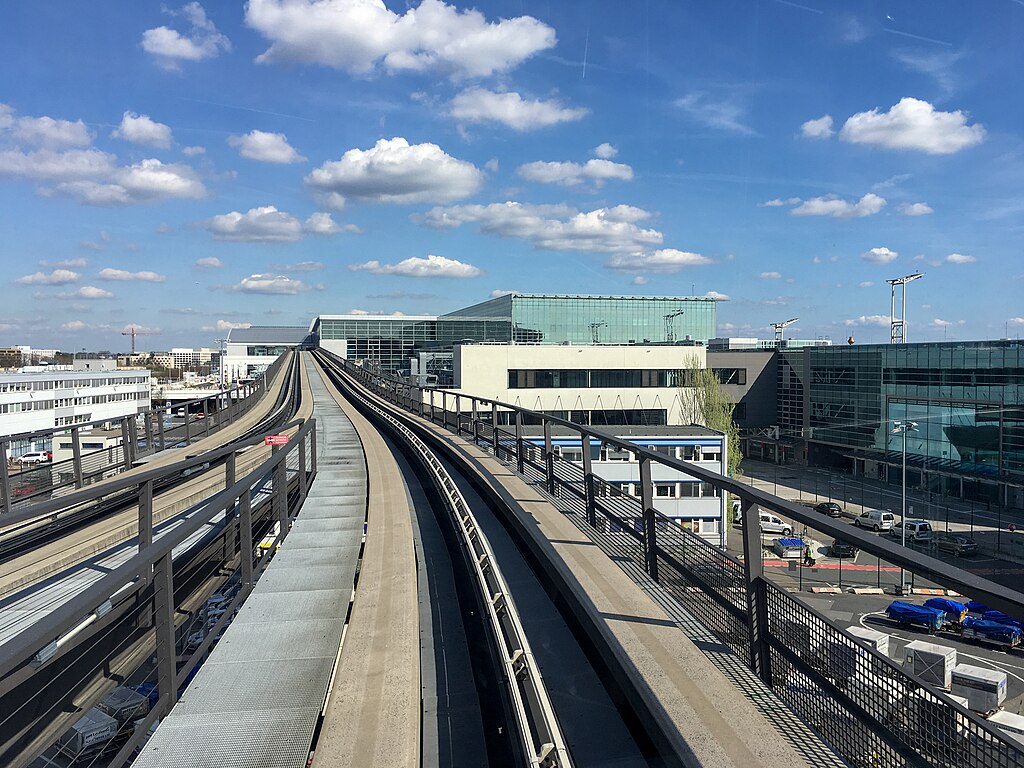
Image: Mike Peel via Wikimedia Commons
Frankfurt International Airport (FRA), which has 39,631,163 seats overall, is ranked fifth busiest European airport in 2024. In 2023, it was ranked fourth.
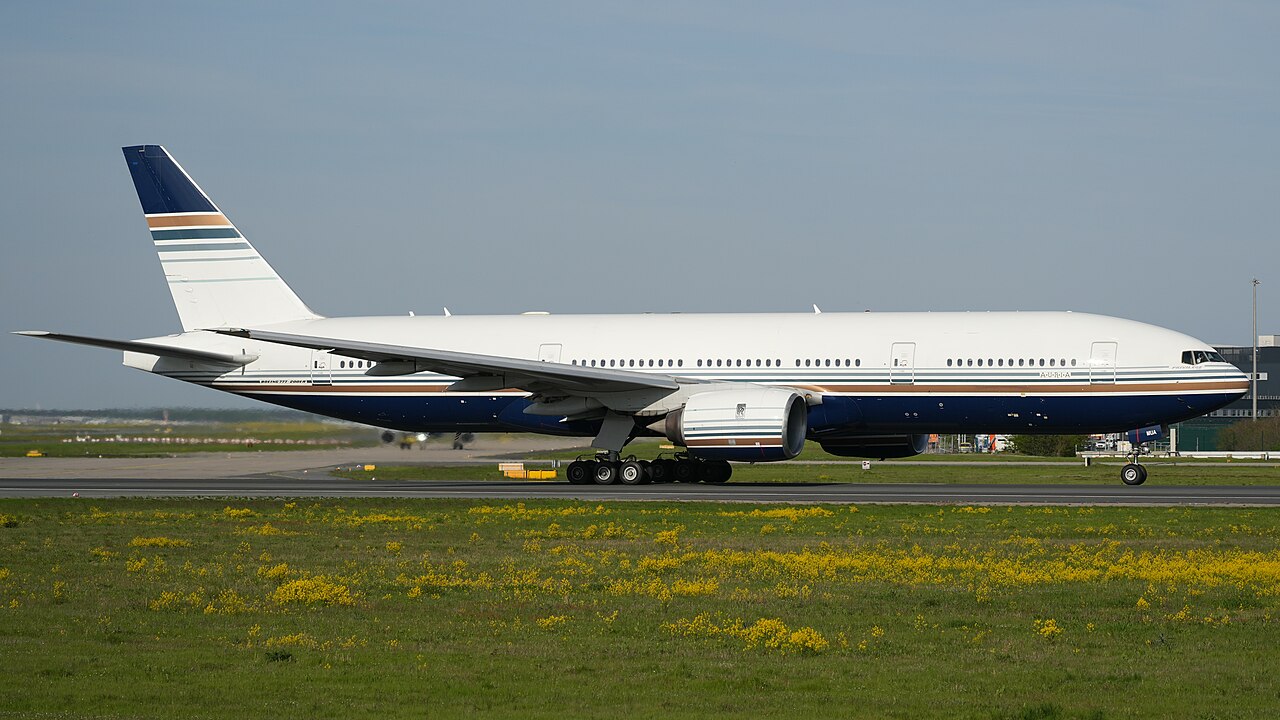
Image: MarcelX42 | Wikimedia Commons
The Boeing 777-212ER of the airline Privilege Style, with the registration EC-MUA, is taking off from runway 18 of Frankfurt Main Airport.

Image: MNXANL | Wikimedia Commons
The airport features four runways, which allow for smooth and uninterrupted takeoffs and landings. In 2019, the airport was the second-busiest European airport.
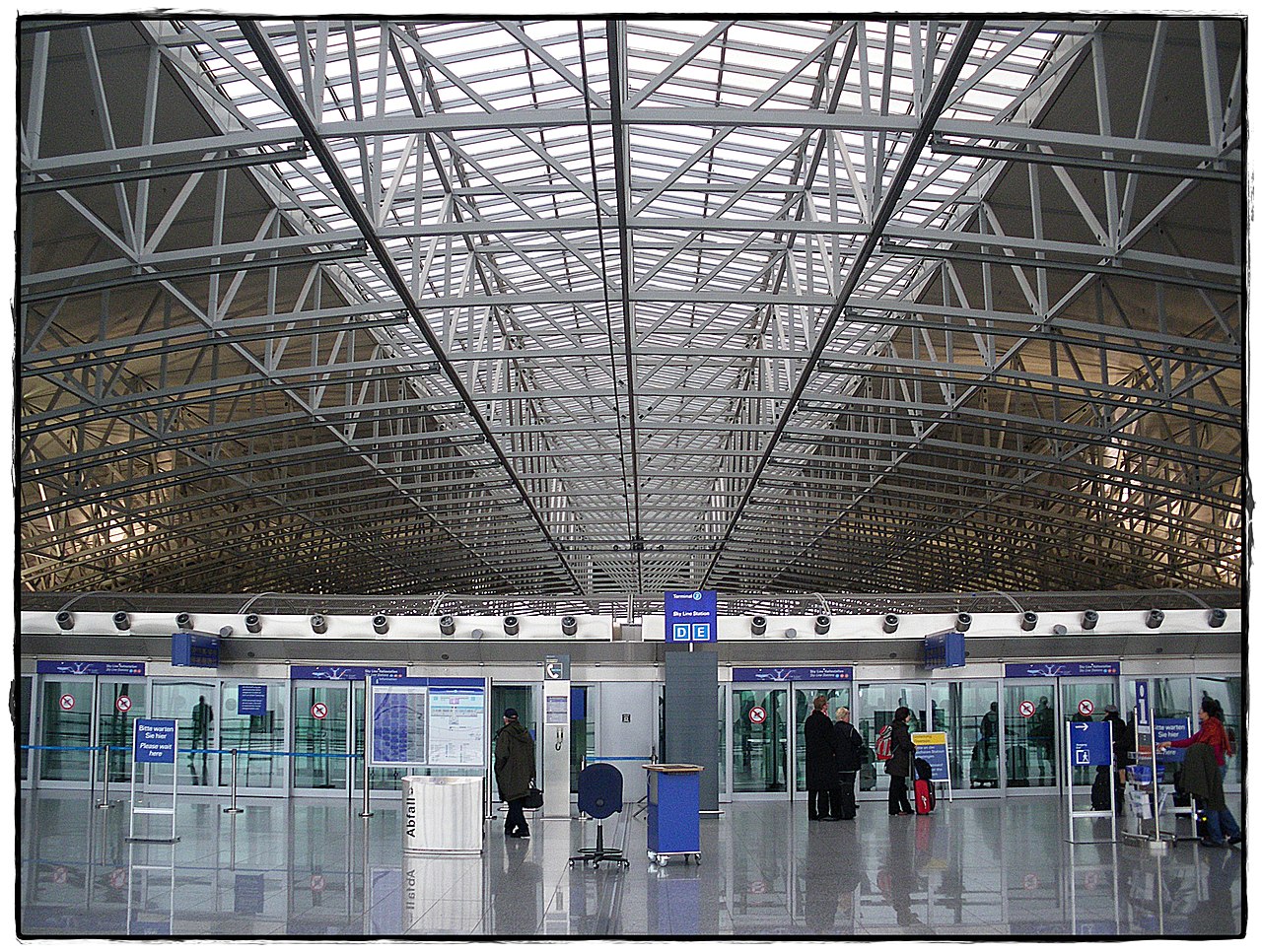
Image: uggboy | Wikimedia Commons
Germany’s second-largest metropolitan area, the Frankfurt Rhine Main Region, lies right adjacent to the airport and is situated in the heart of the heavily populated west-central European region.
4.Amsterdam

Image: Tbatb | Wikimedia Commons
With 40,004,242 tickets, Amsterdam Airport has risen from fifth position to fourth place this year.
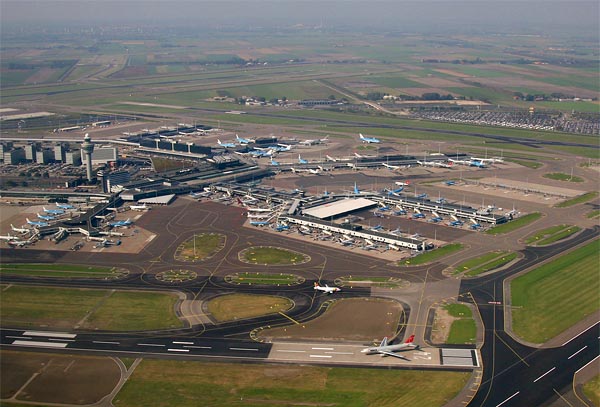
Photo:Fyodor Borisov via Wikimedia Commons
With six runways, Schiphol can effectively accommodate a large number of flights. With connections to more than 300 locations throughout the globe, the airport serves as a significant entry point for travel within Europe and across continents.
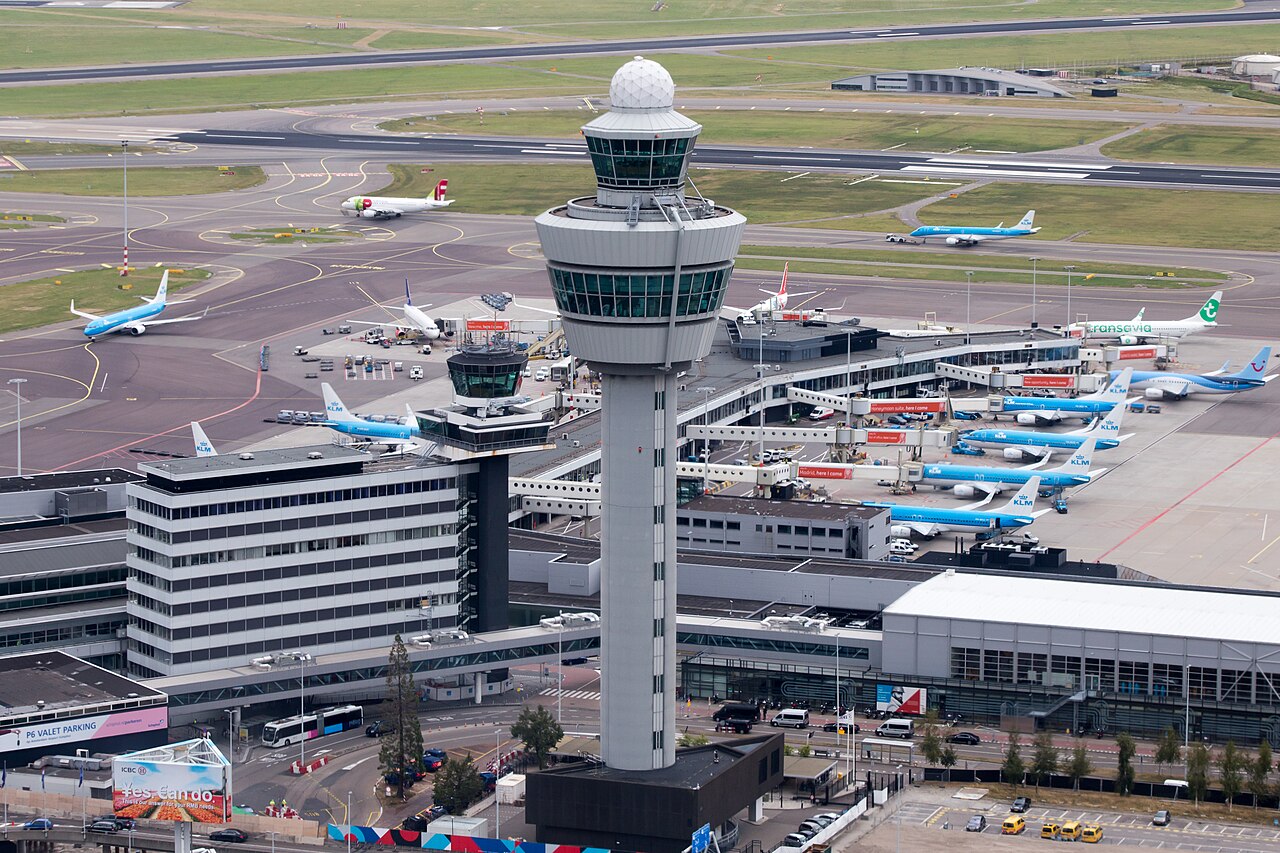
Photo: Ikreis via Wikimedia Commons
With its 360-degree perspective of the runways, taxiways, and terminals, this roughly 101-meter (331-foot) tall structure ensures safe and effective air traffic control.

Photo: Rob Koster | Wikimedia Commons
Duty-free stores, lodging, VIP lounges, and cultural attractions like a Rijksmuseum art show are just a few of the many facilities available at Amsterdam Airport.
3.Paris Charles de Gaulle
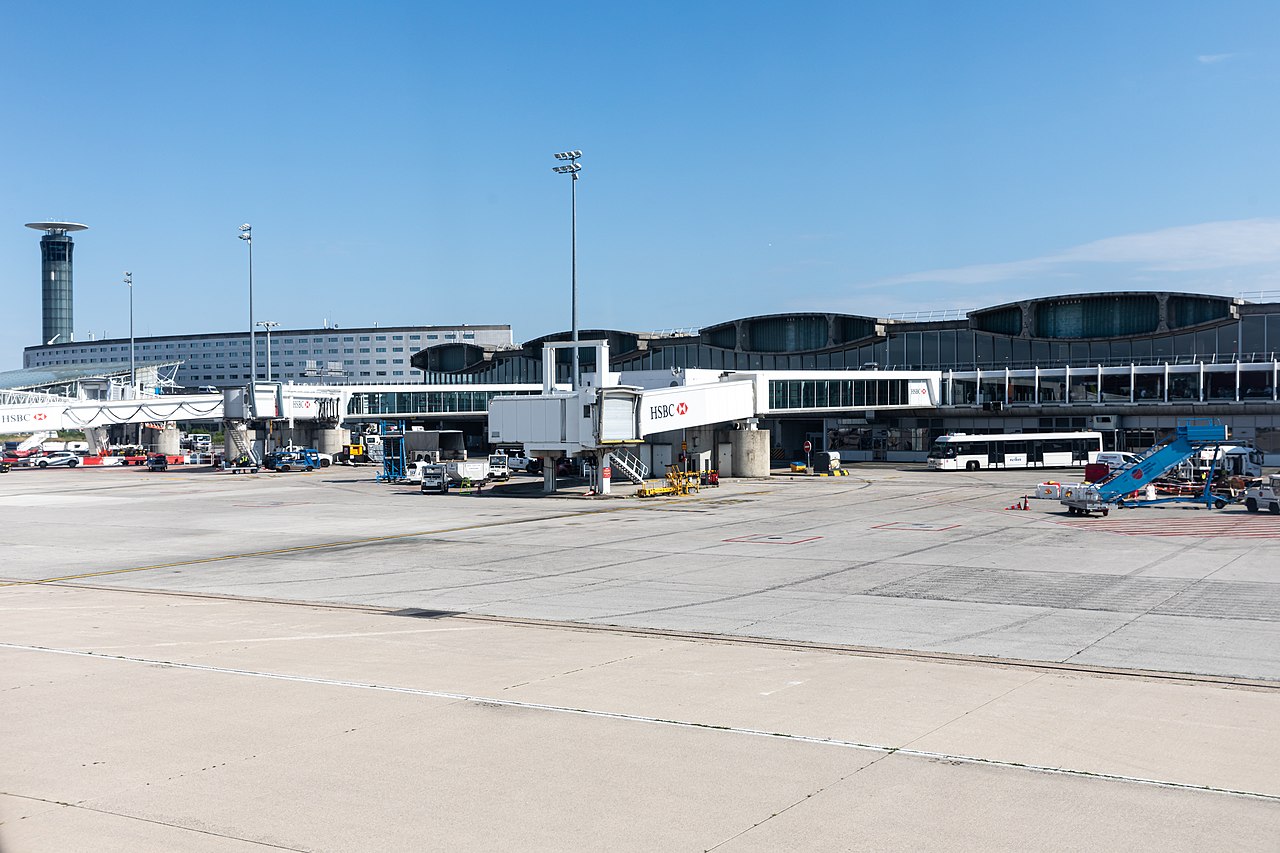
Image: Matti Blume | Wikimedia commons
Charles De Gaulle (CDG), which has 42,080,518 seats, is still in third position. Being the biggest airport in France, it serves as a significant base for Air France and is essential, equally to domestic as well as international travel.
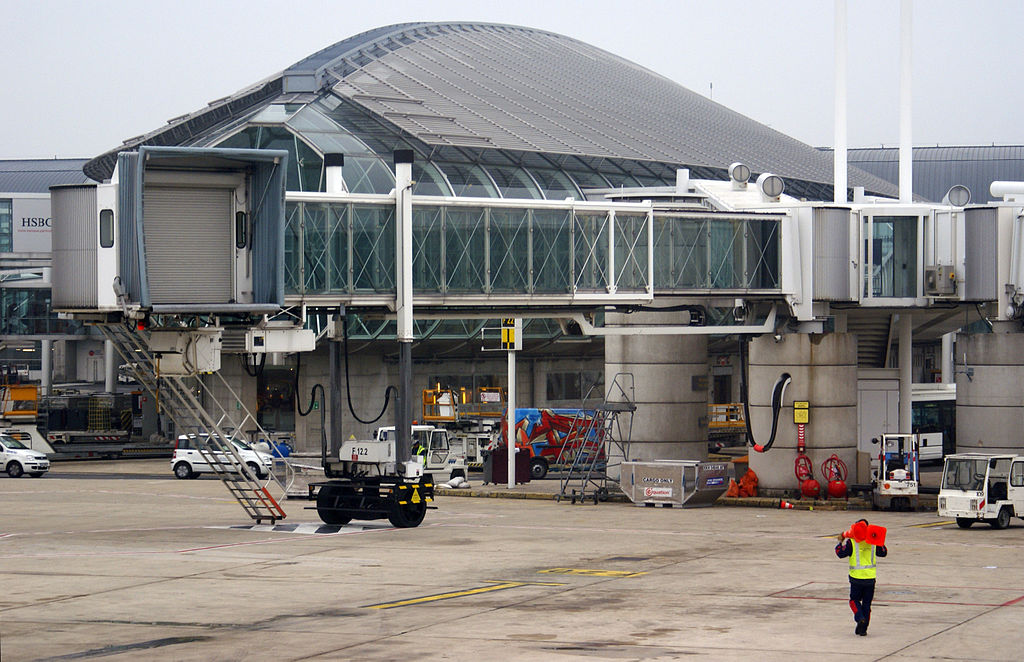
Image: ERIC SALARD | Wikimedia Commons
With four runways, CDG can effectively accommodate a large number of flights. In addition to being a significant hub for Air France, it is an important transit hub connecting Europe, Africa, Asia, and the Americas – the longest flight from this airport being the near 9000-mile journey to Perth.
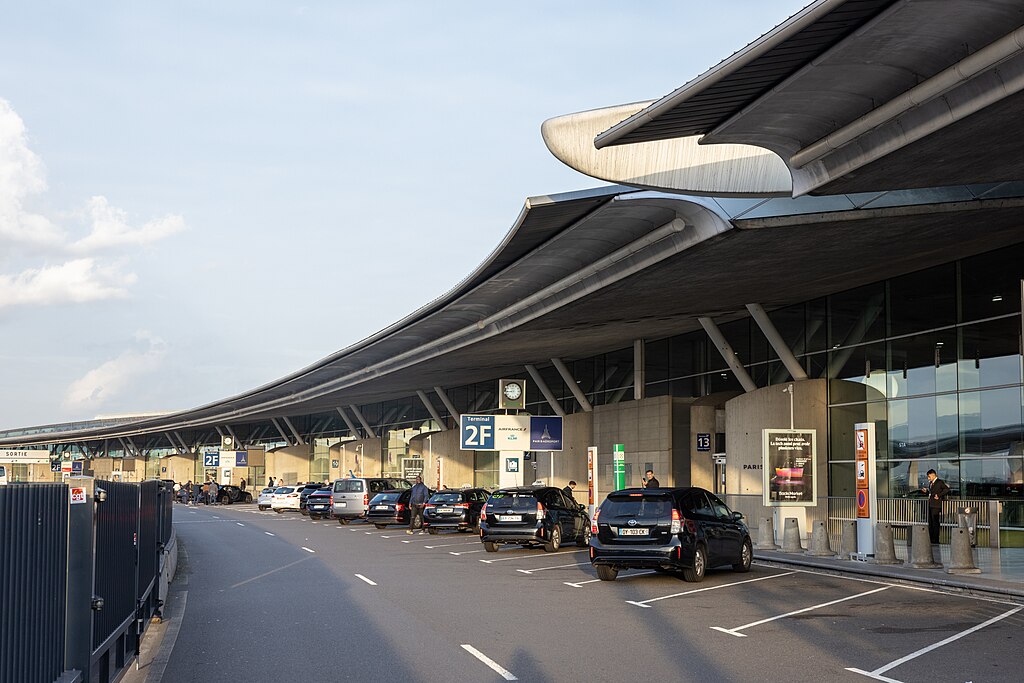
Image: Arne Müseler | Wikimedia Commons
The airport was the third busiest European airport in 2019 as well as 2023.
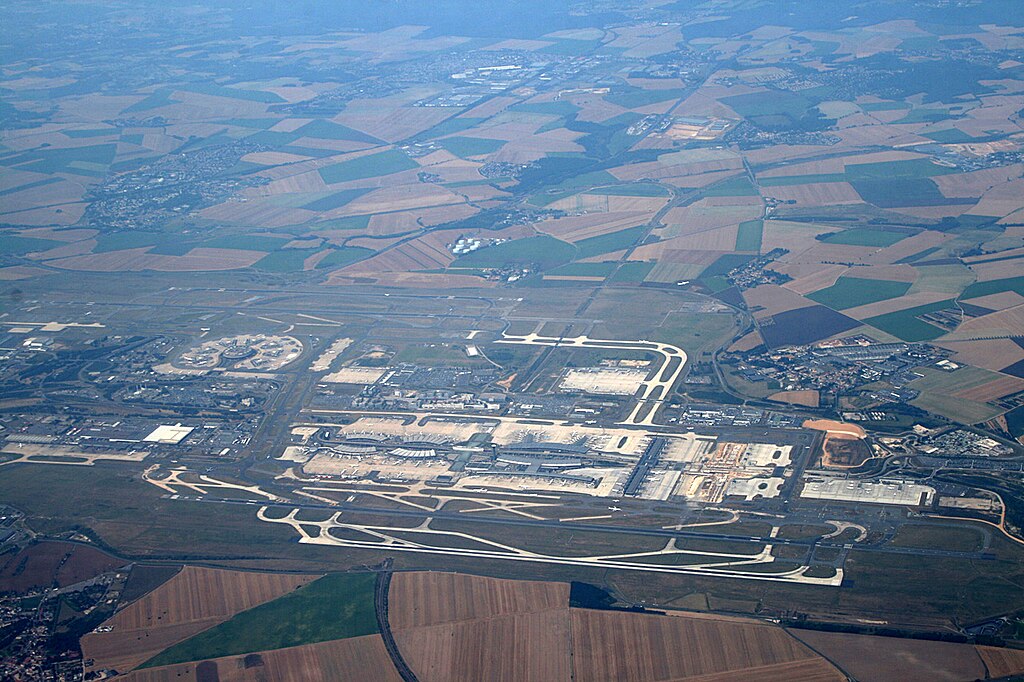
Photo: Remi Jouan | Wikimedia Commons
The airport was opened half a century ago outside of downtown Paris due to the reduced likelihood of relocations or expropriations and the potential for future airport expansion.
2.Istanbul
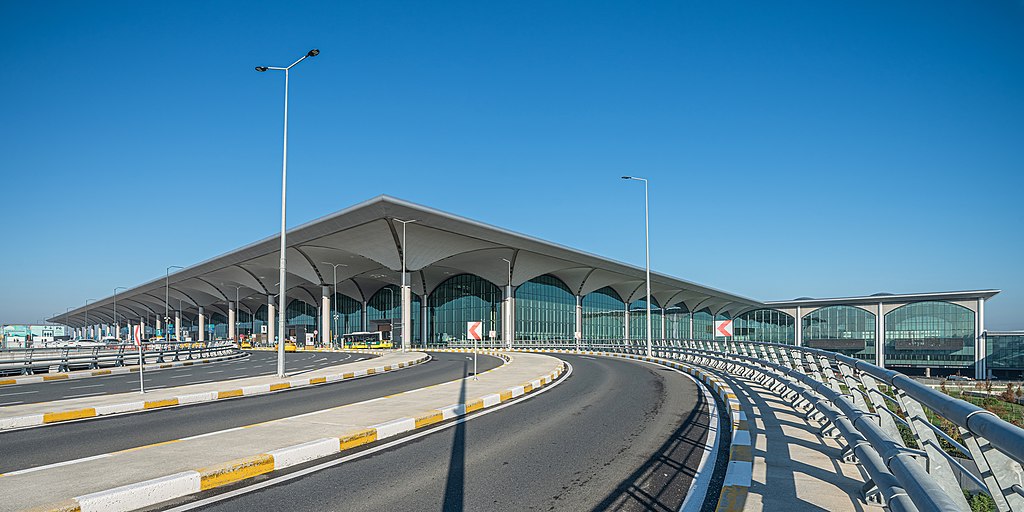
Image: A.Savin |Wikimedia Commons
With 48,517,967 seats in 2024, Istanbul Airport is the second-busiest European airports in 2024. Its rank was the same in 2023. It is a key hub for Turkish Airlines and one of the airports in Europe with the quickest rate of growth.
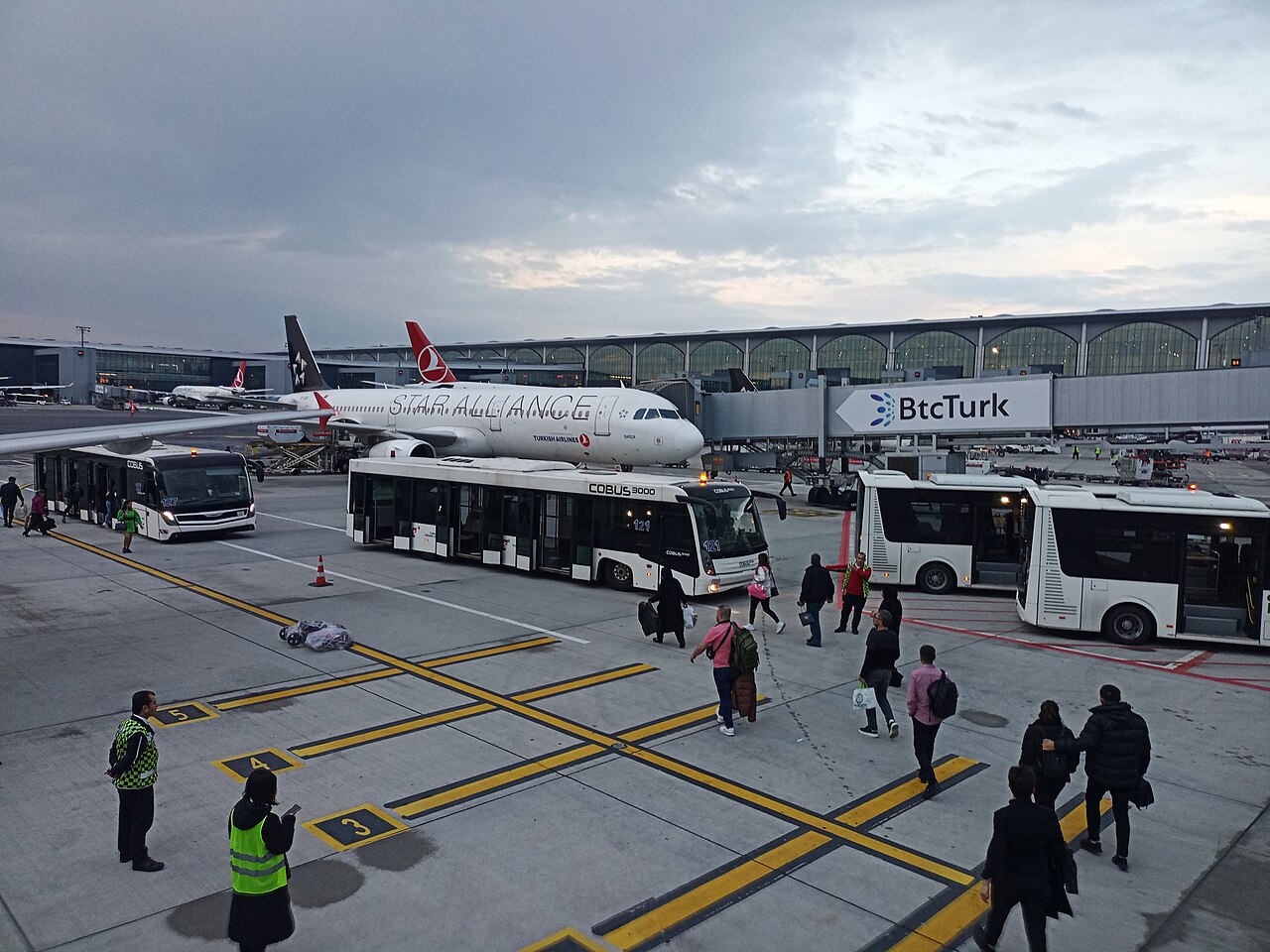
Image: Fatih Renkligil | Wikimedia Commons
The airport’s single, enormous terminal—one of the biggest in the world—ensures smooth passenger flow. The airport has five runways, and offers flights to more than hundred nations.

Image: Kizil | Wikimedia Commons
World-class amenities are offered at Istanbul Airport, such as upscale duty-free shopping, Turkish and foreign cuisine, first-rate lounges, and contemporary business facilities. The airport is also home to the world’s largest airport museum.
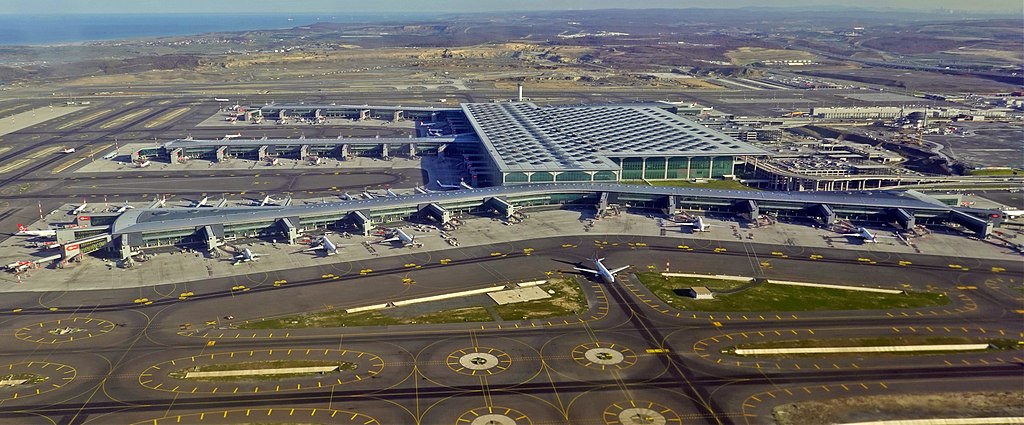
Photo: Kulttuurinavigaattori | Wikimedia Commons
Istanbul Airport was the fourth busiest in Europe in 2019.
1.London Heathrow
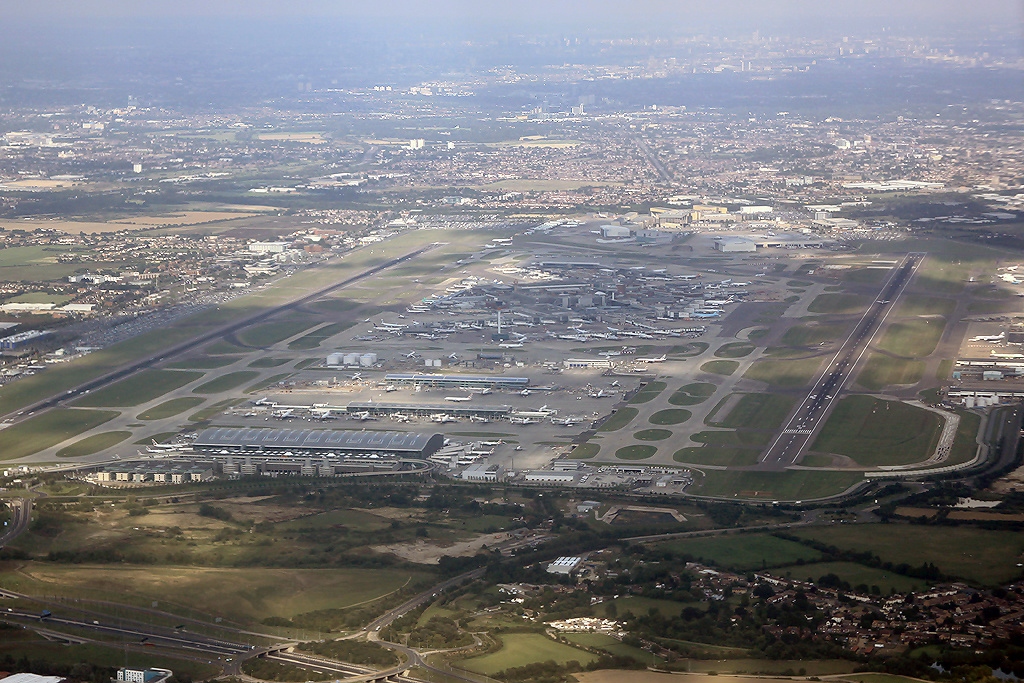
Image: Konstantin von Wedelstaedt via Wikimedia Commons
With 51,553,190 seats in 2024, unsurprisingly, Heathrow is the busiest airport in Western Europe. It was also ranked first in both 2023 and 2019.
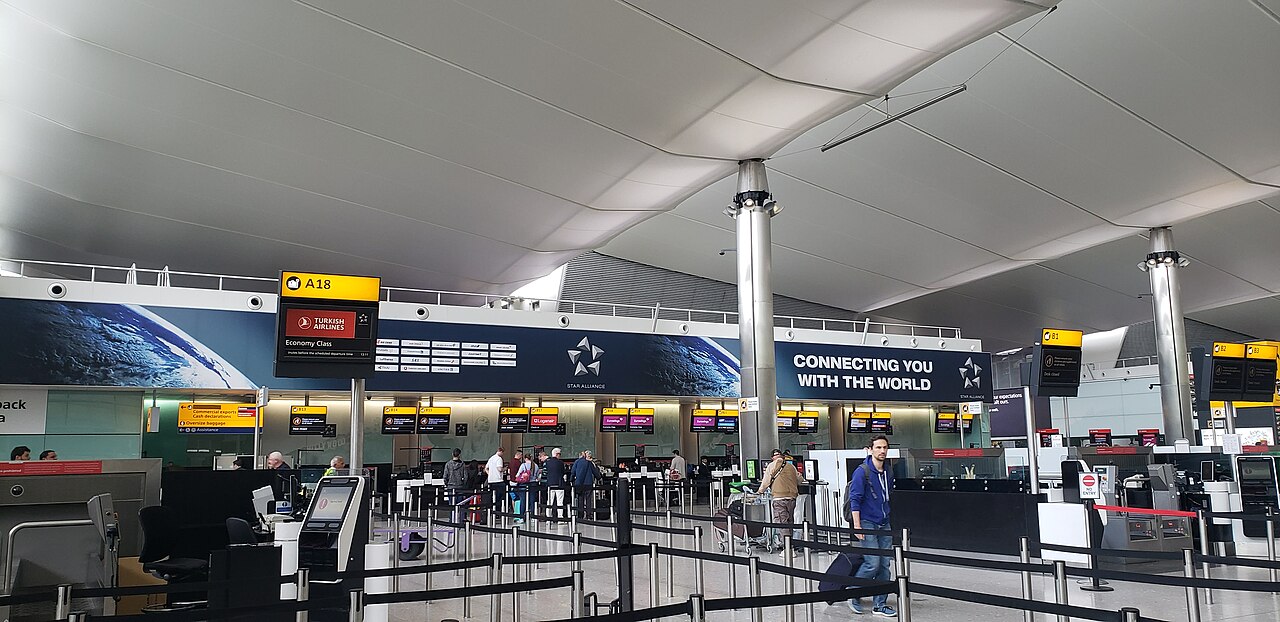
Image: Commonsabhay via Wikimedia Commons
An 8,988-mile journey between Heathrow and Perth [operated by Qantas] is the longest non-stop flight out of Heathrow.

Photo: Ben Brroksbank | Wikimedia Commons
The airport’s first civilian flight took place in 1946.
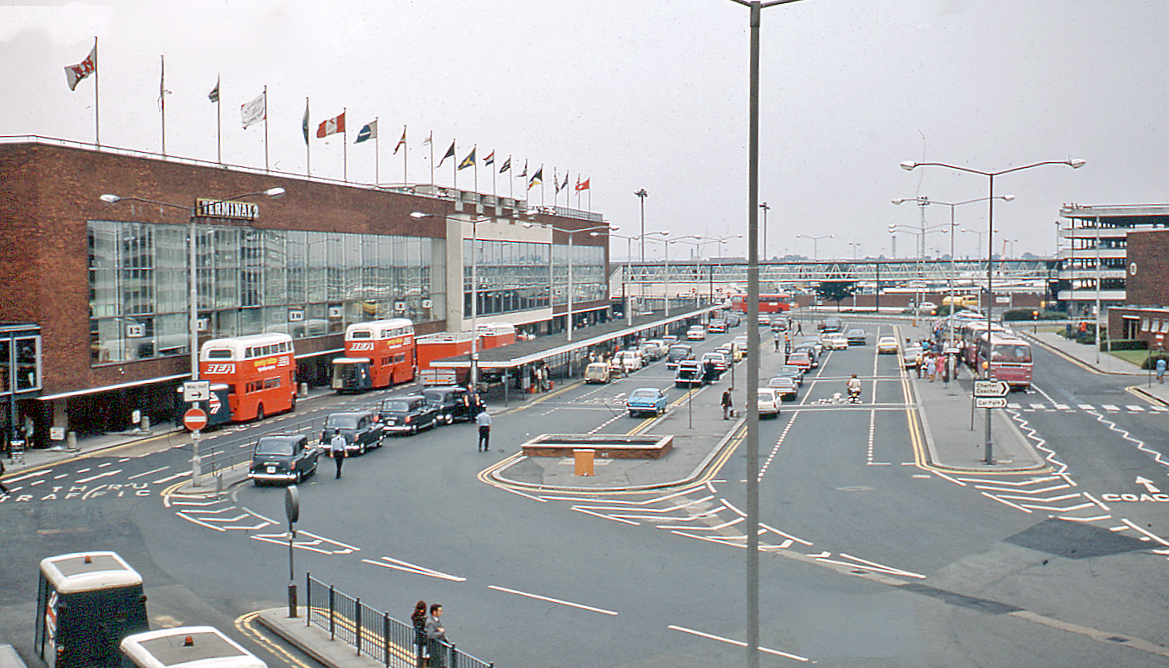
Photo: Ben Brooksbank via Wikimedia Commons
Do you think that Heathrow is likely to be the busiest European airport in 2025 as well? If not, which airport might be a worthy successor ? Let us know in the comments below.
